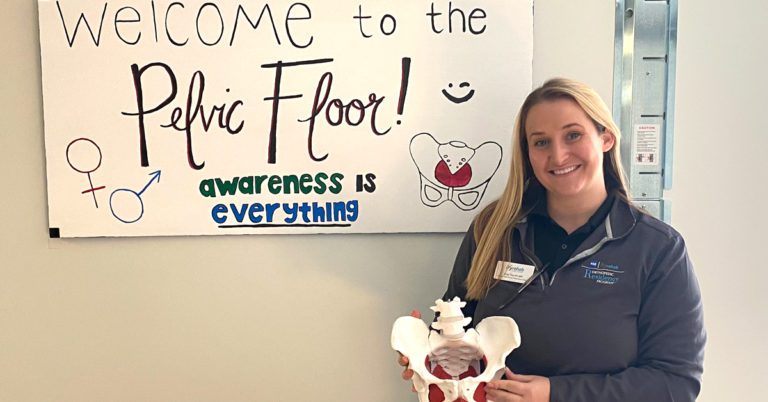
Clinical Spotlight: Emily Titus, Orthopedic & Pelvic Floor Specialist
When dealing with the human body, we’re often reminded that things don’t always appear as they seem. Sometimes we get a case that seems pretty straightforward but treatments fall short, requiring us to take a step back and look at the bigger picture. After all, the body truly is more connected than we think.
Emily Titus, DPT, began working with a distance runner who was experiencing pain anytime she laced up. The patient appeared to be suffering from a pretty straightforward hamstring strain, but after a few treatment sessions she was seeing no improvement at all. A bit stumped, Emily went back to the drawing board. It was here that she relied upon the knowledge gained through her work in Ivy’s Orthopedic Residency Program (ORP).
“This patient was an elite CrossFit athlete so when we saw no change in her symptoms I shifted gears and began to treat the lumbar region through a stabilization and strengthening program,” explains Emily. “Still no progress was made so I dove a bit deeper and began asking more in-depth questions. This is where I discovered that the pain may be stemming from her pelvic region. Upon receiving consent to complete a pelvic examination, I could tell that her obturator internus muscle, which is part of the hip joint and lateral wall of pelvis, was causing the pain. Once we released the muscle and incorporated several pelvic centric exercises and stretches, her symptoms diminished and she was able to return to running pain free.”
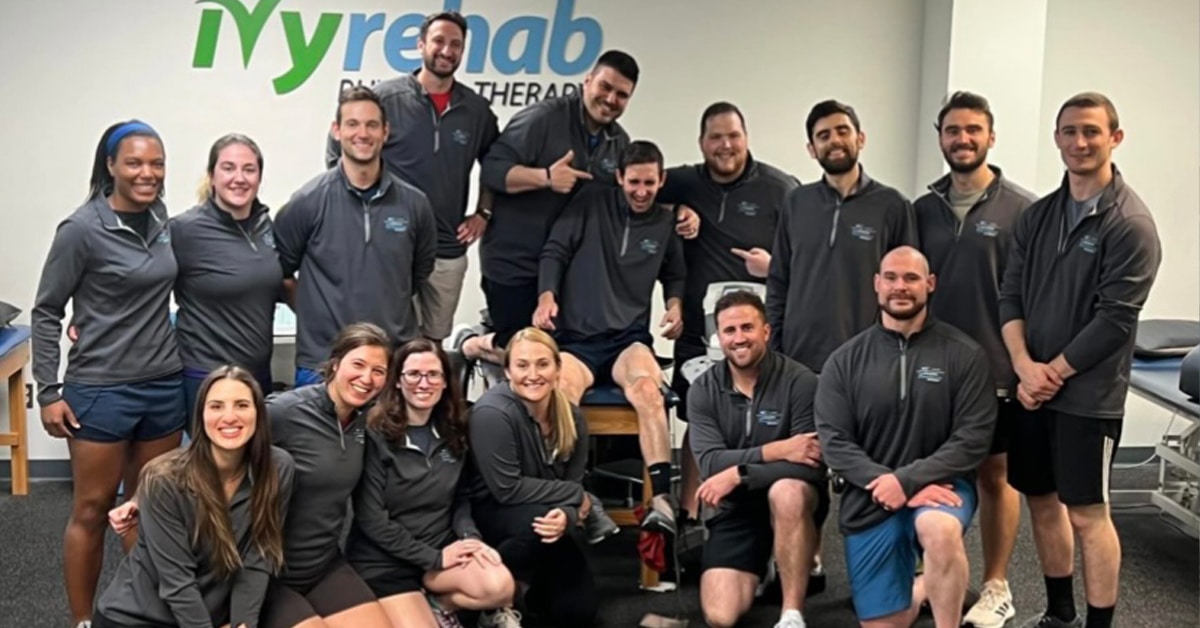
Growing your practice in a more meaningful way
While the ORP is a multi-faceted approach to advancing a skillset, the end goal is to give clinicians the opportunity to grow their practice in a more meaningful way. In Emily’s case, her interest in orthopedics was sparked when a shoulder injury led her to physical therapy as a young adult. Throughout the process she began to see the deeper relationship that could develop between a therapist and patient but she says her passion really evolved through helping patients overcome barriers they thought were permanent with the help of exercise and intervention. Soon after graduating she began honing her skills in the orthopedic sector and never looked back.
“My screening abilities have drastically improved since participating in the ORP, and they continue to improve daily with practice. I’ve also been able to recognize the depth to which one’s cognition and thoughts surrounding their injury can impact their recovery. In the case of the patient in question, I directly credit my training through the ORP to help me confidently rule out that her symptoms were coming from her hamstring or lumbar spine.”
As part of the residency program, participants must complete a research case study presentation that they can then submit to their state conference. Emily chose to do her research on her pelvic health patient and as it turns out, the American Physical Therapy Association (APTA) found the case equally interesting and offered Emily the opportunity to highlight her poster at their annual Combined Sections Meeting (CSM) in February.
“This patient episode really stuck out to me because it was a seemingly straightforward hamstring strain that ended up being a pelvic floor dysfunction. Most clinicians would never think to consider the pelvic floor in a patient presenting with symptoms like a hamstring strain, or potential lumbar involvement, so this would have been a patient who did not achieve her goals or progress had I not examined her pelvic floor,” explains Emily. “I think it’s an important case for clinicians to review because so many pelvic floor dysfunctions present like a pseudo-orthopedic case but will not progress to the same degree if the pelvic floor is not directly addressed.”
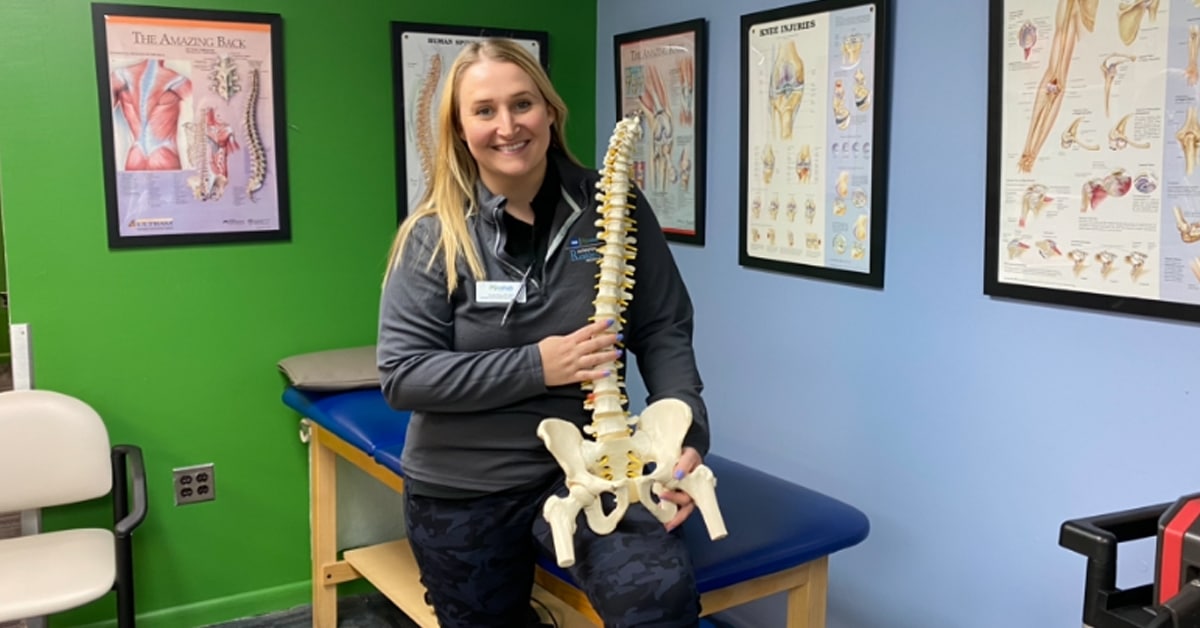
Using her research to influence others
Emily is hopeful that her research will raise awareness and influence others to consider the pelvic floor when a patient is suffering from lower extremity, core, or lumbar issues. These pathologies may not be as straightforward as they seem, but the pelvic floor is a huge component of the core musculature that can impact the regions surrounding it. However, it takes a special approach to handle pelvic cases in a way that puts the patient at ease. Emily’s thorough, yet professional approach is part of what makes her excel at her craft.
“The most important part about screening for the pelvic floor is being comfortable with using proper anatomical terminology, all while being professional and thorough in any discussion you have with a patient. Some patients may be confused as to why their clinician is inquiring about their sexual health when they’re receiving treatment for their back and the clinician must have an appropriate, professional, and caring demeanor when explaining how the pelvic floor can be connected to their diagnosis,” she explains. “If your patient is female, inquire if they’ve had children, are experiencing urinary or bowel incontinence, or experiencing pain with intercourse. If your patient is male, inquire if they’re experiencing penile or sexual dysfunction, urinary or bowel incontinence, and if they’ve had any history of prostate health abnormalities. These conversations do not have to be uncomfortable if the clinician can practice getting comfortable with asking the proper questions, with proper terminology, and with professionalism.”
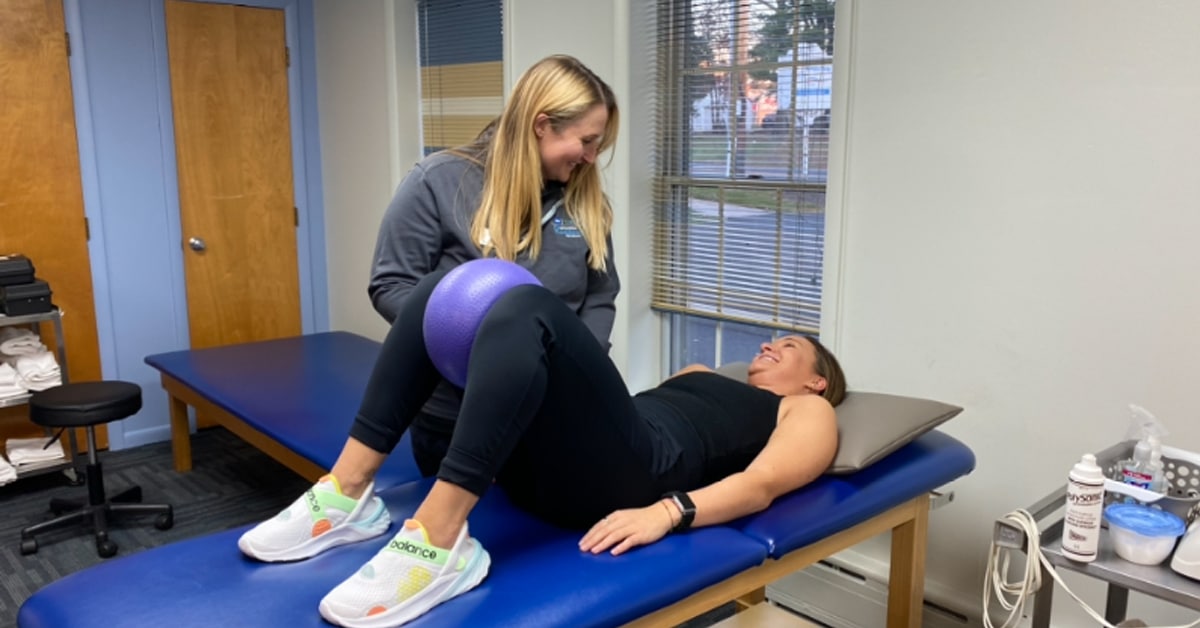
By taking a step back and assessing the body as a whole, Emily was able to relieve her patient of the pain she was experiencing, allowing her to get back to the lifestyle she was accustomed to. Her inquisitive nature and style of care allowed Emily to establish a level of trust with her patient, which ultimately led to the appropriate diagnosis and outcome.
“I’ve wanted to specialize in orthopedics since I began PT school, and through Ivy I’ve been given the opportunity. When I was getting acquainted with the company and learned how Ivy could help me achieve my goals of specializing in orthopedics and pelvic health, that was it – I was sold.” – Emily Titus, PT, DPT
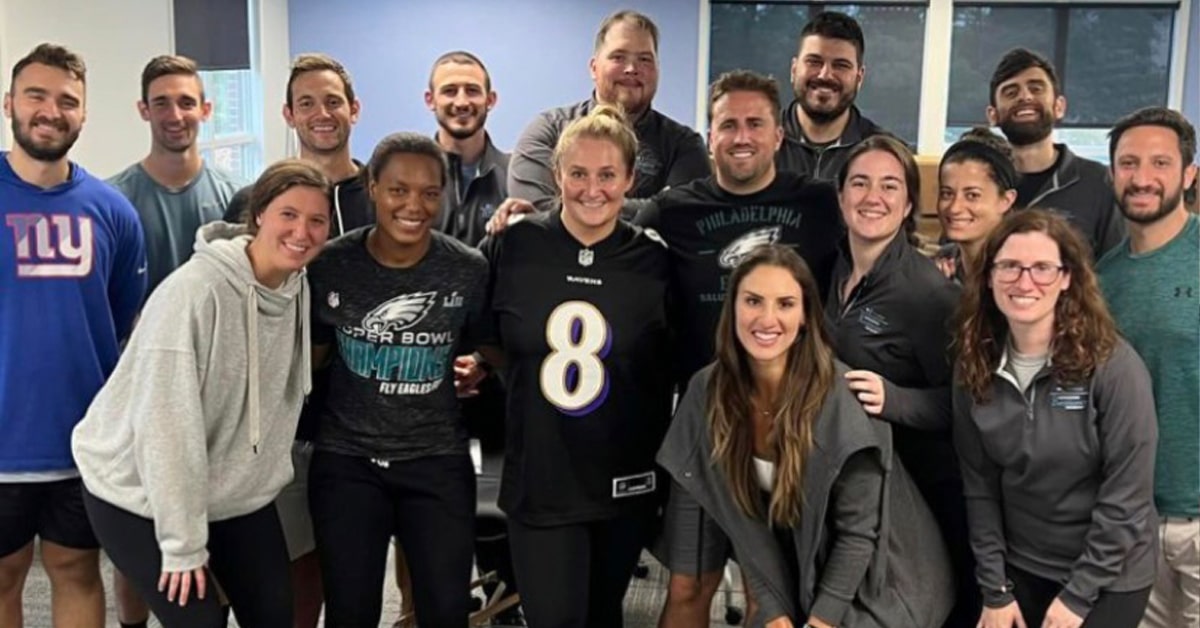
Emily Titus is a pelvic floor and orthopedic specialist in our Lansdale, PA clinic, where she also serves as the assistant clinic director.
The medical information contained herein is provided as an information resource only, and does not substitute professional medical advice or consultation with healthcare professionals. This information is not intended to be patient education, does not create any patient-provider relationship, and should not be used as a substitute for professional diagnosis, treatment or medical advice. Please consult with your healthcare provider before making any healthcare decisions or for guidance about a specific medical condition. If you think you have a medical emergency, call your doctor or 911 immediately. IvyRehab Network, Inc. disclaims any and all responsibility, and shall have no liability, for any damages, loss, injury or liability whatsoever suffered as a result of your reliance on the information contained herein.